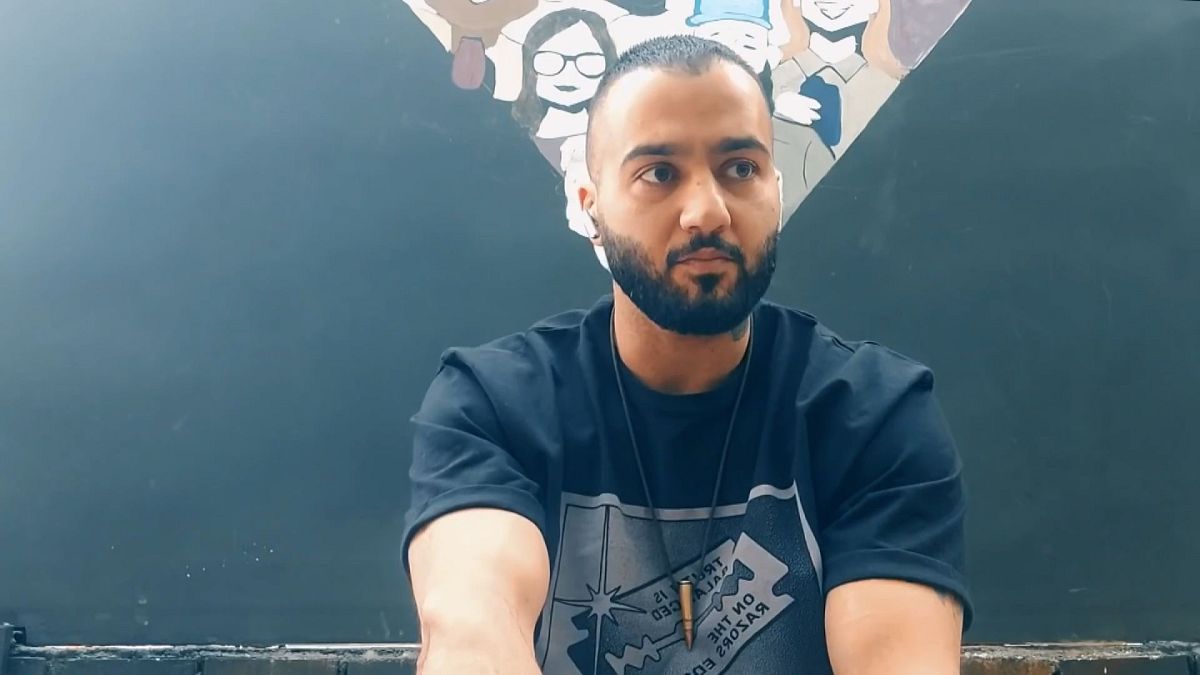Iran’s Supreme Court overturns death sentence against rapper Toomaj Salehi

Iran’s Supreme Court has overturned the death sentence against rapper Toomaj Salehi, who was imprisoned for supporting the nationwide protests sparked by the death of Mahsa Amini.
Following the news that opposition rapper Toomaj Salehi has Death sentenceBecause of his involvement in the large-scale protests that swept Iran in 2022, Salehi’s lawyer Amir Raisian confirmed that the verdict was overturned.
“Salehi’s death sentence has been overturned,” Raisian said in a post on X, adding that the Supreme Court had ordered a retrial.
“The Supreme Court has prevented an irreparable miscarriage of justice,” Raisian said, adding that the court also ruled that Salehi’s “previous sentence (six years and three months) also did not comply with the rules for a wide range of crimes.”
Index on Censorship, a campaign group that has worked with Salehi’s family to free the rapper, welcomed the decision to overturn the death sentence.
“Toomaj Salehi uses his powerful art – his rapping, his music, his words – to support human rights, democracy and freedom for the Iranian people,” the group said in a opinion“For this reason, he has been targeted by the Iranian authorities for years and they are trying to silence him through arrests, imprisonment, torture, attacks and even the death penalty.”
It added: “It is vital that his rights are properly respected” and “even a shorter prison sentence would be unfair.”
“Salehi has done nothing other than demand respect for his and other Iranians’ fundamental rights.”
Salehi, 33, was arrested in October 2022 to public Supporting demonstrations The trigger was the death of Amini in the custody of the country’s morality police. She had been arrested because she wore her hijab too loosely.
He was sentenced to death In April, he was charged with the capital crime of “causing corruption on earth” and was also found guilty of “aiding and abetting sedition, assembly and conspiracy, propaganda against the state and inciting rebellion”.
Hundreds of people were killed and thousands arrested during the months-long protests sparked by Amini’s death.
Salehi is best known for his protest songs about social problems in Iran and the policies of the government of the Islamic Republic of Iran – songs such as “Mouse Hole”, “Turkmenchay” and “Pomegranate”.
His music video posted on YouTube before his arrest in 2022 included the lyrics: “Someone’s crime was dancing with their hair in the wind / Someone’s crime was that he or she was brave and was criticized… 44 years of your government / It’s the year of failure.”
Salehi is not the only artist to have been targeted for his opposition to the government. Kurdish-Iranian rapper Saman Yasin, who was also arrested at the height of Iran’s 2022 protests, was admitted to a psychiatric hospital twice in less than a year, according to pro-reform news outlet IranWire. A court in Tehran sentenced Yasin to five years in prison, according to Kurdish human rights group Hengaw.
In January, Mehdi Yarrahi, another singer who had criticized the compulsory wearing of headscarves for women, was sentenced to a total of two years and eight months in prison on several charges. The court later commuted Yarrahi’s sentence to house arrest due to his health problems.
Nine men were executed in connection with the protests, which included killings and other acts of violence against the security forces.
The decision to overturn Salehi’s death sentence comes in the wake of Iran’s presidential elections, which are scheduled to take place on June 28. Death of President Ebrahim Raisi in a helicopter crash on May 19. One of the issues is the obligation of women to wear the hijab, but little has been said about the treatment of dissidents.
Additional sources • AFP – Censorship Index



